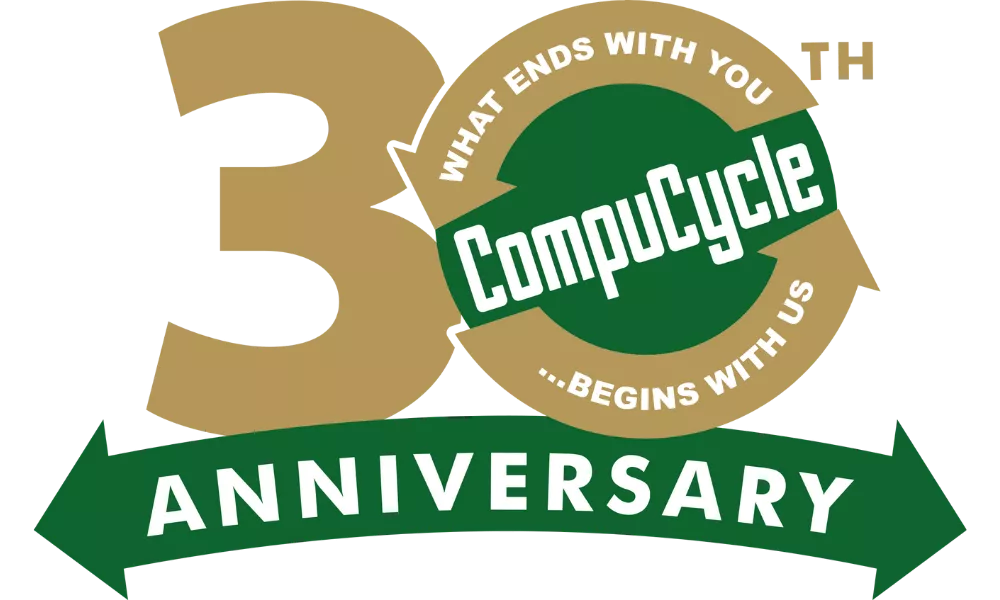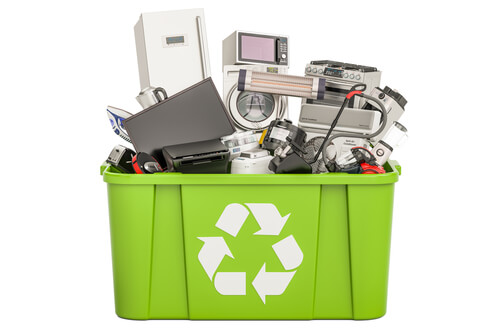
The problem of e-waste has been growing rapidly but so have e-waste recycling efforts. Local e-waste recycling companies that are responsible and certified properly dispose of redundant and non-recyclable materials extracted from end-of-life electronics. The past few years have also seen a revolution in the equipment and techniques of electronics and computer hardware recycling. A reliable and credible e-waste recycling center has efficient tools and resources available to it that it can use for tech recycling purposes.
However, these huge strides have also brought about a major prevalence of false beliefs and myths about e-trash recycling that have resulted from misinformation. In this article, we will see some of the most drastic misconceptions about e-waste recycling and some facts that debunk them.
Myths and Facts About Electronics Recycling
#1) E-Waste Eventually Ends Up in Landfills
One of the most common myths about electronics or computer hardware recycling is that e-waste cannot be prevented from making its way to landfills and polluting the environment. However, this is far from the truth as an e-waste recycling center that is R2 certified and well-equipped has a number of processes that it can use to mitigate unnecessary waste. These include testing and refurbishing the electronics to make them suitable for reuse, remarketing and reselling them, and extracting valuable materials from them to be reused in the production of other products.
Equipment that has no chance of being reused also goes through a process in which the materials that are harmful to the environment are responsibly disposed of instead of being trashed in a landfill.
#2) Only Large Electronics are Worth Recycling
The list of recyclable electronics is a long one. Along with large electronics, such as TVs and computers, one can recycle tablets, smartphones, servers, imaging equipment, and a host of IT devices. This myth is brought about by the misconception that smaller e-devices have insignificant amounts of toxic materials that cannot do much harm to the environment. This is false as even the smallest of devices can wreak havoc on the environment if they make their way to a landfill. Therefore, it is vital for individuals as well as businesses to ensure all their tech devices reach an e-waste recycling center.
#3) The Local E-Waste Recycling Departments Will Handle It
It is a highly prevalent e-waste recycling myth that the electronic devices and computer hardware in the trash go to electronics recycling and computer hardware recycling centers. This surely is not the case as an e-waste recycling center cannot afford to go around looking for IT assets scattered around in thousands of tons of trash within a city each day. As far as the city’s recycling departments are concerned, they have a substantial number of other materials to focus their efforts on. Therefore, the only way to ensure electronics are safely disposed of is to look for e-waste drop-off centers within your area if you are an individual; and call a specialized and expert e-waste recycling center, like CompuCycle, if you represent a corporate business.
#4) E-Trash Recycling is Associated With Data Theft Risk
This misconception is an ironic one as computer hardware recycling through a responsible and experienced e-waste recycling center mitigates the risk of data theft and loss. The data stored on electronic devices can be critical for the business that own them. Many businesses think they have permanently wiped off the data from their IT assets after performing a few processes and then throw them in the trash. What they do not realize is that the data that was previously stored in the devices can still be recovered, sometimes easily, by professional data thieves. To wipe the data for good from such devices, complex processes through advanced tools and software must be performed that only certified, and specialized electronics recycling companies have at their disposal.
#5) E-Waste Gets Shipped Overseas Anyway
It is true that e-waste gets shipped overseas to less regulated countries, but this only happens if one hands over IT assets to non-certified and irresponsible e-waste recycling firms. E-waste recycling programs and companies that are R2 (Responsible Recycling) certified are compliant with international and local e-waste recycling regulations and standards. This means that the e-waste you give them will not only never leave the country but is sure to be properly and responsibly recycled and disposed of.
$60 million worth of silver and gold is trashed in the United States each year, simply from throwing away out-of-life cell phones. Most e-waste is not waste; rather intact electronics that can be recycled and reused. 3,657 homes in the United States can be powered for a year from the energy conserved by recycling just 1 million laptops. For all these causes and much more, it is extremely important to support e-waste recycling and on-site shredding programs and choose a certified and specialized e-waste recycling center for all your corporate e-waste recycling needs. Contact CompuCycle today, and help do your part to keep toxic waste out of landfills!
Recent Articles
The $987 Billion Question: Is Your ITAD Partner Ready for AI’s Hardware Avalanche?
The data center industry is experiencing an infrastructure transformation unlike anything since the advent of the internet era. While headlines focus on the trillions being poured into AI infrastructure, a critical downstream challenge is emerging…
Goodwill Houston Partners with CompuCycle to Offer Simple, Responsible Electronics Recycling for the Community
Goodwill Houston and CompuCycle have partnered to give Houstonians a simple, trustworthy way to donate and recycle household electronics.
Through this collaboration, residents can drop off laptops, desktops, tablets, monitors, and other household electronics at participating Goodwill Greater Houston donation centers. Reusable items help fund Goodwill’s job training and community programs, while non-resellable electronics are sent directly to CompuCycle’s certified Houston facility for secure, fully in-house recycling—ensuring materials are responsibly processed locally from start to finish.
CompuCycle Becomes Exclusive Woman-Owned E-Waste Processor in Texas with ISO 27001 Data Security Certification
New Information Security Management System (ISMS) Certification Guarantees End-to-End Data Confidentiality and Integrity for Corporate IT Asset Disposition (ITAD). HOUSTON, TX – December 9, 2025 – CompuCycle, an industry leader in secure and sustainable IT…
Secure Electronics Disposal in Houston: Why the City’s Largest Industries Trust CompuCycle
When a major healthcare system decommissions thousands of laptops, or an oil and gas company retires an entire data center, one question comes up again and again: What happens to all that data — and…




